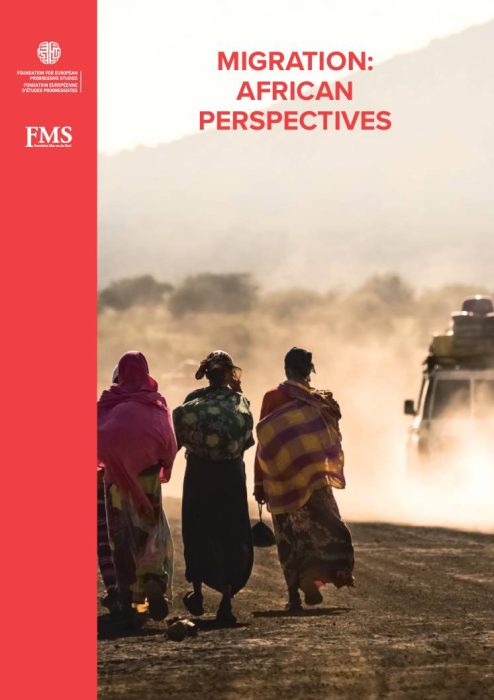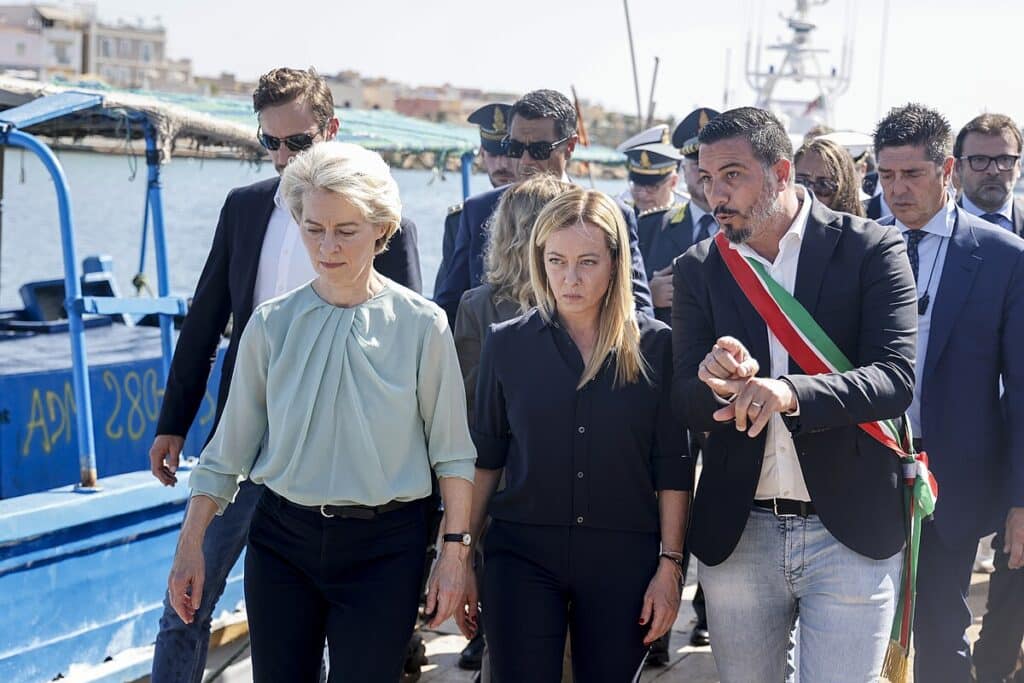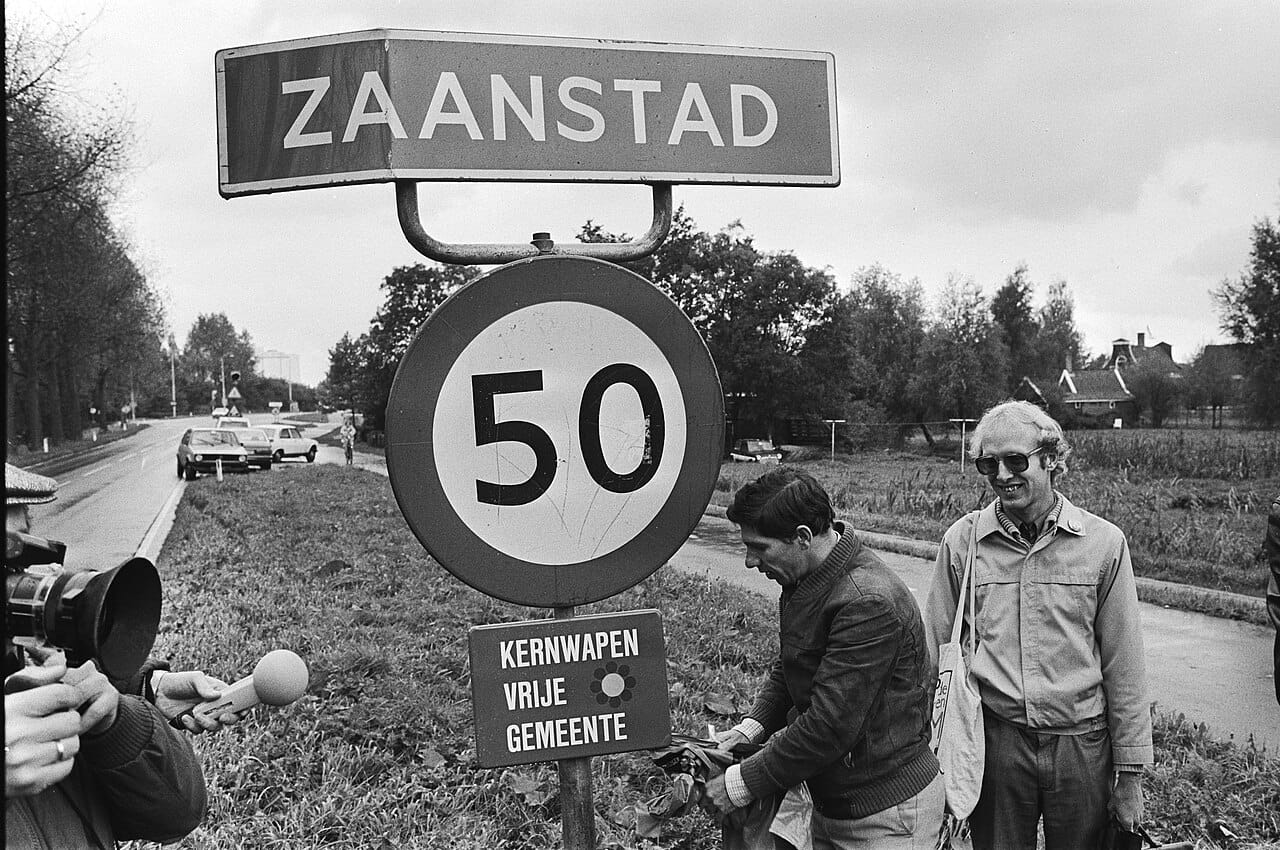Ten years ago, two terrible shipwrecks occurred off the island of Lampedusa. At least 368 refugees died during the first shipwreck on 3 October. Just eight days later, during a second disaster, at least 268 more refugees, including 60 children, drowned. The high death toll can be explained not only by the shipwreck, but also by the reaction of Italian authorities. Indeed, they stopped a naval vessel that was supposed to help the refugees onto the boat, preventing them from disembarking on Italian territory. Delays in the rescue thus contributed to the death toll.
In response to this tragic event, outrage followed across Europe and a commitment was made to make the necessary efforts. The then Commission president, José Manuel Barroso, said this would "never happen again".
The Italian search-and-rescue operation Mare Nostrum was launched but was disbanded after just one year. Limited European sea patrols took its place, but they came to an end in 2019. Since then, search-and-rescue policies have been hampered by pushback, criminalisation of NGOs and deliberate delays. The figures do not lie: At least 28,100 people have died or gone missing trying to cross the Mediterranean to reach Europe since 2014. This year looks set to be the deadliest in the Mediterranean since 2017 - with 2,357 people recorded dead or missing so far. Organisations like Amnesty, Médecins Sans Frontières and Human Rights Watch do not call the Mediterranean a "mass grave" for nothing.
These deaths could have been saved, for instance through effective search and rescue missions and the provision of safe and regular routes. Indeed, instead of investing in shelter systems and rescue missions, governments are mostly hampering voluntary search and rescue initiatives. In other words, 10 years after the Lampedusa disasters, the situation seems little improved.
How history repeats itself
The number of refugees heading to Lampedusa has increased recently, due to uncertain conditions in Tunisia and conflict in North Africa. Due to lack of legal routes, many migrants feel compelled to make the dangerous crossing to a safer life in Europe. This increase has once again led to disastrous consequences. The Italian Red Cross sounded the alarm, but resources for civil protection were not available stated by Italian authorities.
Although the number of migrants on Lampedusa was increasing, it was not unmanageable. Rather, the problem was that the Italian government made little effort to improve reception facilities or disperse migrants across Italy to take pressure off the very small island of Lampedusa. Instead, Meloni, Italy's far-right prime minister, laid claim to EU countries with higher immigration rates to take in the migrants. Unfortunately, apart from in Italy, there is also a great lack of solidarity among other EU member states.
"Von der Leyen does not seem to shy away from a far-right approach."
Failing measures
Instead of being alarmed by the painful similarity between the disasters of 10 years ago and the current situation in Lampedusa, Italy and the EU are instead working on contradictory and undermining measures that cause more problems than they solve.
Thus it was Meloni who instigated the problematic EU-Tunisia deal. Although the number of departures with 70% increased since it was signed in July, the Italian prime minister refused to accept any criticism of the deal. Indeed, she called calling it a "model to use with other countries too" during a UN meeting. Italy and the EU refuse to recognise that such deals involve serious human rights violations.
In addition, Italy is pushing hard to undermine NGOs dedicated to rescuing migrants. The Italian government obstructs their boats, cuts their funds, bans them from carrying out multiple rescues, and makes them travel longer distances to disembark migrants. The thwarting of NGOs is not limited to the Italian government. On 4 October, the EU announced a deal to measures regarding immigration during times of exceptionally high arrivals. Also for this deal, Italy ensured the removal of references to NGO operations during negotiations.
NGOs see how damaging the Italian government's actions are, and plead therefore advocate that governments stop antagonising them, open more legal migration routes, and simplify the legalisation process for illegal migrants already in Italy.
Unfortunately, in recent weeks the far-right Italian government has just additional steps taken to complicate the legalisation process, such as the measure to make migrants waiting for an asylum decision pay a €5,000 bail if they do not want to be sent to a detention centre. On top of the new Italian measures, departures from North Africa are to be blocked by a European naval mission. This was announced by European Commission president Von der Leyen, who does not seem to shy away from for this far-right and inhumane approach.
Political framing
It is clear that European political choices led to the Lampedusa disasters of 10 years ago. Unfortunately, not enough has been learned from that lesson, and inhuman policies have increased rather than decreased. The similarities between the situation that allowed the disastrous disasters to happen and the current situation are extremely painful. Helpful and humane long-term measures are lacking. The focus seems mainly on the strategic political framing of migrant flows. For instance, Meloni and Von der Leyen are of the opinion that accused Lampedusa for their political campaign for the approaching European parliamentary elections. Moreover, political framing of migration often suggests that the problem is not in failed measures by European governments, but in 'unmanageable' migration flows and people smugglers.
"The focus seems to be mainly on the strategic political framing of migrant flows"
Although promises to reduce migration figures score well during elections, (far-right) parties struggle to put their words into action. When Meloni's far-right party was elected last year, they promised to reduce mass immigration to Italy. But in just a year, the number of people arriving in Italy on boats from North Africa has almost doubled.
The necessary measures
Amnesty International states Rightly: "Despite promises to crack down on smuggling operations, European leaders have consistently failed to take the one measure that would ensure smugglers no longer trade: granting sufficient visas." Also tweeted Alarm Phone, an organisation that receives distress calls from people trying to cross the Mediterranean: "EU politicians continue to blame smugglers for mass deaths at sea, while those who build and 'protect' borders are responsible for endless suffering. In the absence of safe corridors, people will continue to risk their lives at sea".
According to Giovanna Di Benedetto, representative for Save the Children, people continue to die in the Mediterranean Sea because there is still a lack of coordinated rescue operation and safe migration routes. She calls for safe and regular routes through which people can escape poverty, conflict and climate disasters: "Migration is not an emergency but a human phenomenon that must be properly addressed and managed. Mass mortality in the Mediterranean can and must be completely prevented."
Read more?

Read more about migration and the importance of safe and legal migration routes? In 2019, we conducted research on migration from Tunisia. Read the research this page.




